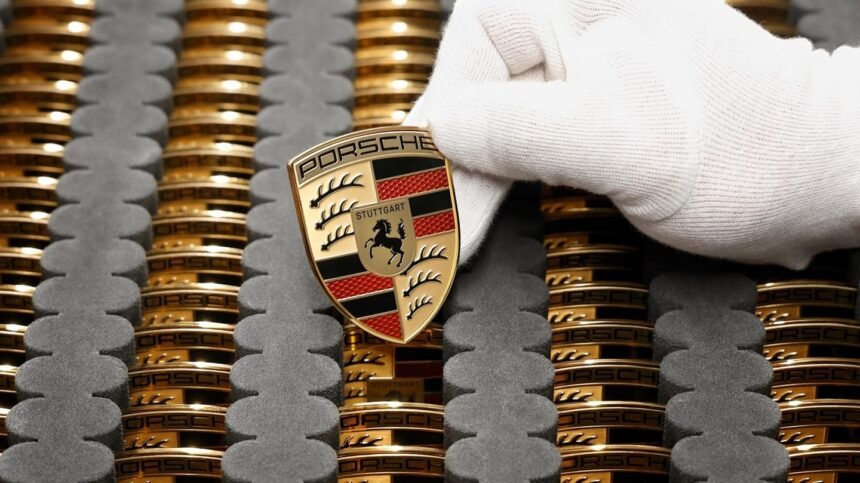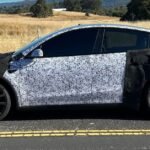Porsche, a well-known luxury car manufacturer, faced a challenging first half of 2025 as its operating profit plummeted by 67% to €1.01bn ($1.16bn) compared to the same period last year. Sales revenue also saw a decline of 6.7% to €18.16bn, with the operating return on sales dropping to 5.5%. The company attributed this decline to macroeconomic and geopolitical challenges.
During the first half of 2025, Porsche incurred special expenses of around €200m for its realignment and approximately €500m for battery activities. Additionally, US tariffs added an extra €400m load, as Porsche offered price protection to its customers and absorbed extra import tax costs rather than passing them on.
Despite these challenges, vehicle deliveries remained robust, with 146,391 units sold worldwide, 36.1% of which were electrified. Porsche has revised its financial forecast for 2025, taking into account recent agreements on import tariffs. The company maintains its expected group sales revenue of €37 to €38bn.
Porsche is currently navigating a significant restructuring process, a slow transition to electric vehicles, and market difficulties in China. The company is intensifying its cost-cutting efforts to address declining sales in China and the impact of US import tariffs.
Porsche’s management is resolutely pushing ahead with extensive measures to rescale and recalibrate the company. Despite the challenges, Porsche’s revised outlook remains optimistic, with a group return on sales of 5% to 7% and an automotive net cashflow margin of 3% to 5%.
The company’s executive board chairman, Oliver Blume, acknowledged the significant challenges faced by Porsche but expressed confidence in the company’s revamped product range. Blume expects to see positive economic momentum from 2026 onwards.
The Macan was the best-selling model for Porsche, and the company achieved new delivery records in North America and other markets. Porsche subsidiary V4Smart celebrated a milestone with its second production line in Nördlingen, Bavaria, ramping up as planned.
In conclusion, Porsche is adapting to a rapidly changing automotive landscape and remains focused on innovation and excellence in the industry. Despite the current challenges, the company is optimistic about its future prospects and is committed to driving automotive industry advancements.







